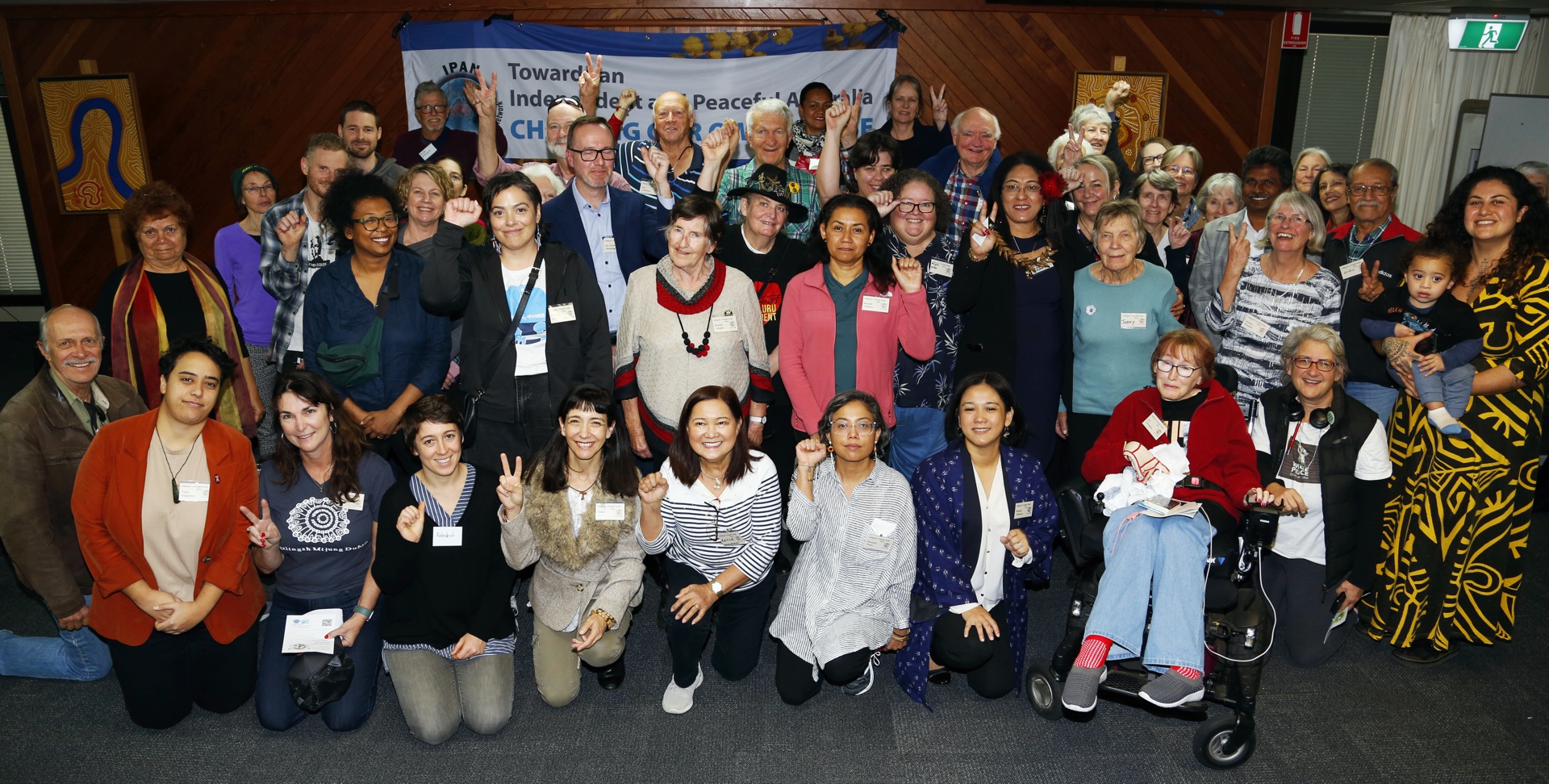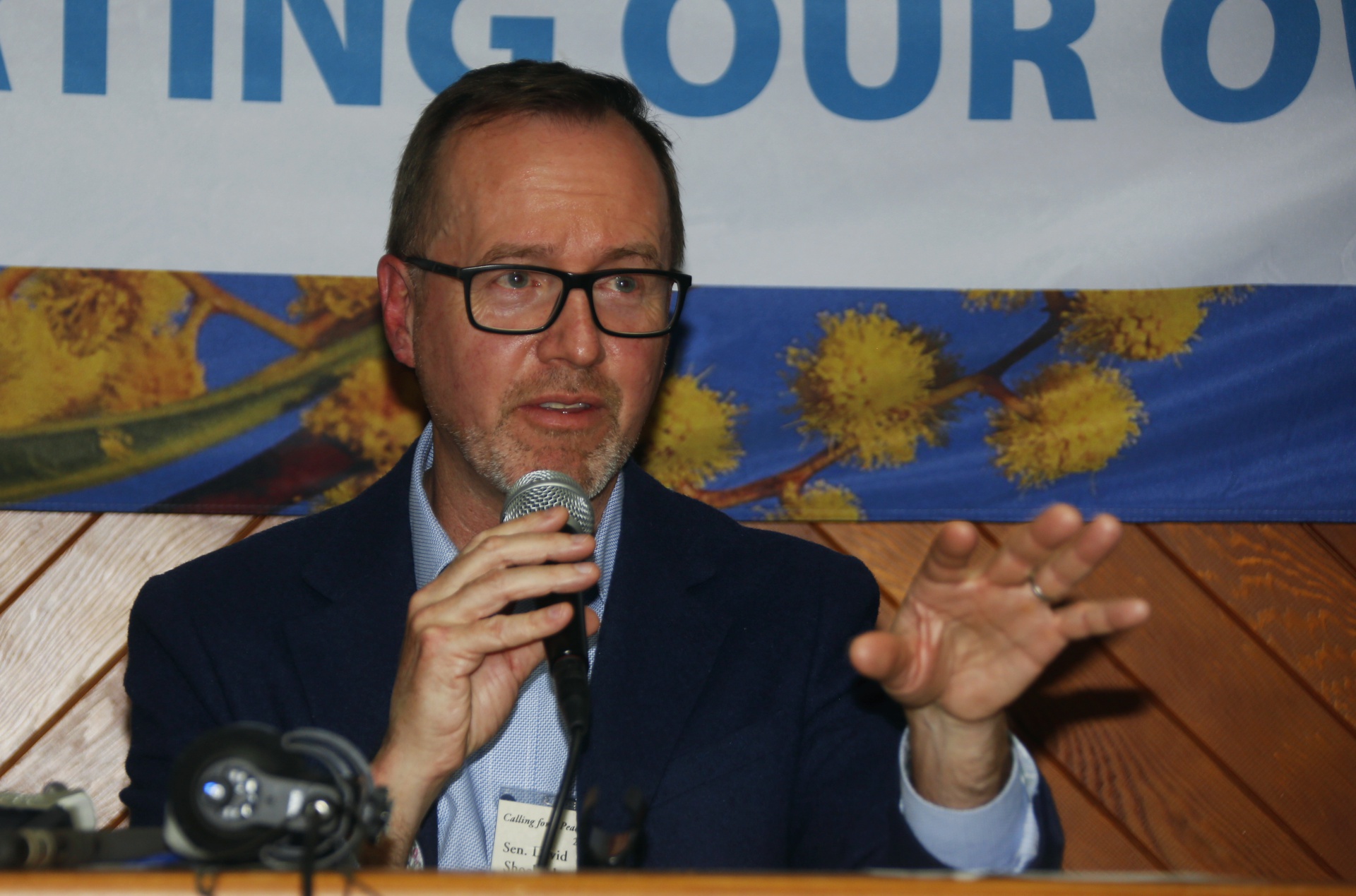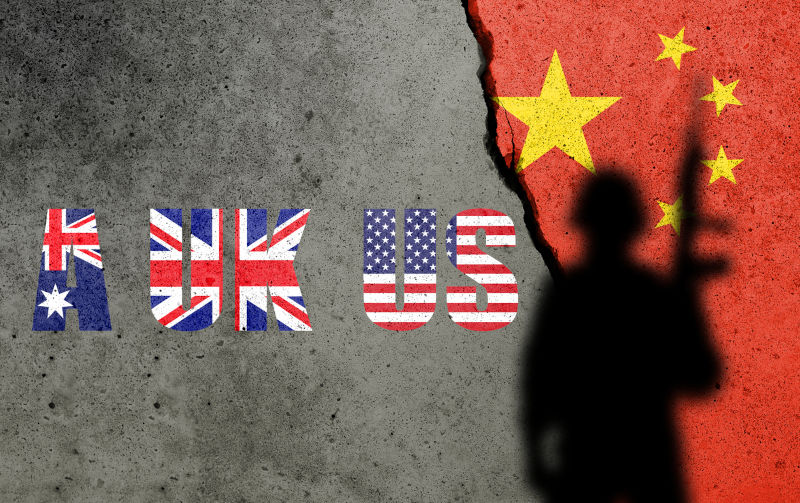Are we on a path to war with China? An interview with David Shoebridge
July 29, 2023
One of the most extraordinary moments in politics in the last five years has been watching Anthony Albanese, notionally from the left of Labour, adopt, without any internal democracy within the Labor Party, without any public investigation of it, adopt wholeheartedly Scott Morrison’s AUKUS plans It’s perhaps one of the most extraordinary betrayals of the public interest and Labor’s historic anti-nuclear platform that I can recall it’s deeply dangerous, and it is leading us down a pathway to war.
On July 28, U.S. Defence Secretary Lloyd Austin and U.S. Secretary of State Antony met their Australian counterparts, Defence Minister Richard Marles and Foreign Minister Penny Wong in Brisbane to outline U.S. plans for the Pacific.
The visit of Blinken and Austin coincided with the 2023 Talisman Sabre military exercises, the most massive series of war games ever staged in this country. Running over two weeks, the exercises involved an airborne drop, mass amphibious landings, live missile firing and submarine hunting. More than 30,000 personnel from over a dozen US allies participated in a series of mock-battles all around the continent. The message this costly piece of war theatre sent was clear, though few dare voice it.
As the guns of Talisman-Sabre blaze out their message around the Pacific, the Independent and Peaceful Australia Network (IPAN) will be sending a counter-message with their conference_, Calling for a Peaceful Pacific_ at the Trades and Labour Council building in South Brisbane on Saturday July 29.

The conference aims to raise awareness of the massive impact on Pacific people, whose lands have been taken and used to base US military forces, as well as the enormous threat to the economy and the environment that the people of the Pacific face from a war between the US and its allies and China.
Speakers attending from Pacific countries include Monaeka Flores from Guahan, Shinako Oyakawa from Okinawa, Anne Pakoa from Vanuatu; Australian speakers include Senator David Shoebridge, the Greens spokesperson on Defence.

The following is an interview with Senator Shoebridge about the peace conference and the prospect for war or peace in the Pacific for Bay FM.
JJ: Professor Jeffrey Sachs is director of the UN Sustainable Development Solutions network and has served as special adviser to three UN Secretary Generals. At the recent Saving Humanity And Planet Earth (SHAPE) seminar in Melbourne, he said US actions are putting us on a path to war with China.
Are we on a path to war with China?
DS: Well, we are, I think, unfortunately on a pathway to war with China. It’s one that’s been largely designed by the US, and we seem to be following along behind like a self-funded poodle to join in the US’s war planning, particularly against China.
I think the United States sees China as a strategic threat to their global dominance, and probably in part they’re right. Their response, though, is a strategy of containment: a defence-led containment strategy. Australia has proven – whether it’s the Albanese Labour government or the coalition government – an extremely dependable unit for that US approach. I think it’s extremely dangerous for the planet, and especially dangerous for Australia.
JJ: On Saturday, you will be addressing a conference organised by IPAN, the independent and peaceful Australia network in Brisbane, on the need for a peaceful Pacific. How do the Greens see Australia acting to build a peaceful Pacific? Should we see the North Atlantic Treaty Organisation or NATO extend to the South Pacific, as the US proposes, or do you see we should adopt different paths?
DS: It’s a ridiculous proposition to extend the North Atlantic Treaty Organisation to also cover the Pacific. It’s more of a kind of statement of intent rather than a real policy proposition from the United States. They want a NATO equivalent in the Pacific.
The real problem with Australia’s posture in the broader Pacific region is that we have adopted a strategy of projecting force well beyond our borders. The Defence Strategic Review decided to move away from a defence-of-Australia model – where we defend our approaches, and we defend continental Australia, use the geography we’re blessed with, which is relative isolation in the South Pacific – to move away from a defence of Australia and its continental defence model into a model which is kind of more traditional aggressive approach from Australia to be part of imperial warmaking and to be projecting force alongside whoever our global powerful friend is, and to be able to project force, in this case, into the South China Sea, to be able to be an element of unsettling China.
The core thing we need to do, the starting point for the peace movement in Australia, is to understand what the strategy is. The current strategy of our government is to defend Australia by threatening our neighbours and being able to threaten, to some extent, China in the South China Sea: to acknowledge and realise this and pull us back from this model.
JJ: Margaret Reynolds is the national president of the Women’s International League for Peace and Freedom and was a former Labor senator for QLD. She has called for an inquiry into AUKUS. She said that AUKUS, like Robodebt, was another significant political decision made by former Prime Minister Scott Morrison, which has not received proper scrutiny.
Morrison negotiated his secret defence agreement without the knowledge of his cabinet colleagues or consideration of the Parliament, apparently deceiving French President Macron in the process. This was presented as a fait accompli to an opposition which wanted to avoid criticism just ahead of the 2022 election. Margaret Reynolds labelled this opportunist and reveals that a few nervous politicians were more focused on their electoral futures than the wellbeing and security of Australia. What’s your view on this?
DS: One of the most extraordinary moments in politics in the last five years has been watching Anthony Albanese, notionally from the left of Labour, adopt, without any internal democracy within the Labor Party, without any public investigation of it, adopt wholeheartedly Scott Morrison’s AUKUS plans.
Scott Morrison, who’s not known for his strategic thinking, came up with this thought-bubble one day, based upon a kind of European-centric history to join a military and technological alliance with the United Kingdom and the United States, in which we would be the smallest player, called AUKUS. He had another thought bubble about getting nuclear submarines for Australia; there was never any credible strategic underpinning to that, no detailed analysis by the Department of Defence. It was a Scott Morrison thought bubble, which, I think, he thought would be useful in an electoral context.
So rather than pop the bubble, or even assess the bubble and have a kind of internal inquiry within Labor, or a serious consideration by Defence, Anthony Albanese swept into office and said not only will he do AUKUS but he’s going to throw his whole political weight behind it, and the Labor Party political weight behind what will probably end up being a half-trillion dollar programme, where we buy someone else’s nuclear submarines and help subsidise their nuclear industry.
It’s perhaps one of the most extraordinary betrayals of the public interest and Labor’s historic anti-nuclear platform that I can recall. And the only explanation for it is that Anthony Albanese is happy to go along with Scott Morrison’s plans for an increased militarised Australia, deeper involvement in the United States military plans because he sees it as somehow politically convenient to him. He’s chasing former coalition voters and moving us to the right. But the idea that we would commit to a half-trillion-dollar programme, totally change our defence posture, and do that without even the most basic of inquiries is not only deeply undemocratic, it’s deeply dangerous, and it is leading us down a pathway to war.
JJ: Does ASPI, the Australian Strategic and Policy Institute, (ASPI), need to be investigated? Twelve days before the writ for the 2022 election was issued and the government went into care-taker mode, Peter Dutton replaced Peter Jennings with Justine Bassi as head of ASPI. Her previous job was chief of staff to foreign minister Senator Marise Payne. Before that Bassi had worked in Malcolm Turnbulls office and before that for LNP attorney-general, George Brandis. As well as appointing this ex-coalition staffer to replace Jennings as head of ASPI, Dutton also appointed former LNP ministers John Anderson and Michael Keenan to the board of ASPI.
DS: I don’t think anyone could look at what happened and not be deeply troubled by what’s happened in ASPI. For the record, I should be clear: my brother, Michael Shoebridge, who I love dearly but have many political differences with, was a former director at ASPI.
But you know, I’m a Greens senator and it won’t surprise you that I often am deeply at loggerheads with ASPI’s analysis and direction. But I think the way in which the former coalition administration not only stacked the board, but also chose the successor for ASPI from within their own political ranks I mean, how can anybody look at that and think that ASPI is genuinely independent or genuinely credible?
ASPI receives a chunk of its funding from the Department of Defence and receives some of its funding from the United States government and also receives some of its funding – a significant part of its funding – from arms manufacturers. I think we should also look at their funding and question whether or not they can have a genuinely independent approach to strategic analysis.
I think many people have started discounting ASPI. I think it’s got a credibility gap that I can’t see them overcoming.

